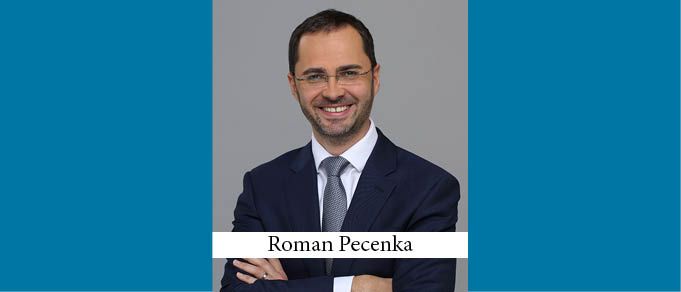Less than 30 years after the wholescale introduction of computers into the legal profession, we find ourselves on the brink of a 4th industrial revolution. Today, we have cars that can drive on their own, we can print almost anything (including entire buildings and human body parts) on a 3D printer, and the Internet of Things is becoming a natural part of our everyday lives. All these tools are making our lives easier and more comfortable. And as the business world adapts to this new era, the legal profession obviously cannot stay behind.
Many of my colleagues are familiar with terms like AI, RPA (Robotic Process Automation), TAR (Technology-Assisted Review), smart contracts, predictive analytics, etc. Over the past few years, numerous interesting and successful projects have introduced these tools into the practice of law. We now have AI “paralegals” that can research case law or perform due diligence to quickly identify the most relevant documents and provisions; robots that can draft various legal documents in mere seconds; and programs that can process thousands of emails or documents and pinpoint critical information much more efficiently than a human lawyer ever could. Technologies that forecast the outcome of a case in court are being used with increasing frequency. The rise of these technologies is not limited to English-speaking countries; their development can be seen everywhere, including the Czech Republic and across CEE.
Thanks to computers we produce many thousands of documents a year; documents that have become longer and more sophisticated than ever. The Internet and the digitalization of many processes has afforded us access to more and better data. With AI and other automated processes we are trying to manage this mass of newly available information so that we may continue to satisfy our clients’ fundamental expectation – that we provide the best, most reliable, and most dedicated counsel.
These tools enhance the efficiency and quality of our work, especially when it comes to simple, repetitive legal tasks and time-consuming legal research, as lawyers spend many precious hours on mundane tasks which could be performed more quickly and – dare I say – even better by machines. There is also the matter of costs. Rare is the client who wants to pay for the many hours and lawyers necessary for the carrying out of an extensive review of contracts when a sophisticated program can identify the critical parts of a contract in a much shorter amount of time, leaving the actual legal work for the humans.
However, does adopting all these new technologies mean that we are in fact slowly putting an end to our usefulness as lawyers? Will AI ultimately be our undoing? Just the opposite! The way I see it, this could actually mark a return to the classical roots of the legal profession.
Once we are able to free ourselves from manually having to process the ever-increasing numbers of legal documents which today form part of even the most trivial legal matter, we can again be lawyers whose time is spent doing actual legal work instead of basically being overpriced secretaries in fancy suits. Similarly, we will be able to serve more clients, who will be ready to pay more for an hour of our work; especially in the CEE region, where it is still common for even crucial transactions to be carried out without the advice of a lawyer.
It is unsurprising that, since AI typically does the types of jobs delegated to junior lawyers in training, the younger generation may be fearful of fiercer competition for jobs or a more challenging learning curve. The first fear is simply false, since good juniors have always been and will always be a scarce commodity. Even the second concern is wrong. When I joined my first law firm in Prague as a paralegal, the firm’s doyens were still dictating to their secretaries, and only one computer in the office had an Internet connection. My competitive advantage in this environment were the skills that were, are, and will always be appreciated: an open mind and a willingness to learn and to adapt to new conditions. As long as the younger generation continues to possess these skills, there will always be jobs out there for them.
The long-established diversity of Central and Eastern Europe will add challenges to implementing and using these new tools when compared to English, Chinese, or Spanish-speaking jurisdictions. That said, most of our countries are well known for being adaptable and for possessing well-developed programming skills, which I can confirm, based on my own experience with the development and deployment of various new technology tools within our law firm. Therefore, I am absolutely convinced that all these tools will easily be introduced and beneficial to the legal profession across the entire CEE region.
By Roman Pecenka, Partner, PRK Partners
This Article was originally published in Issue 5.11 of the CEE Legal Matters Magazine. If you would like to receive a hard copy of the magazine, you can subscribe here.




